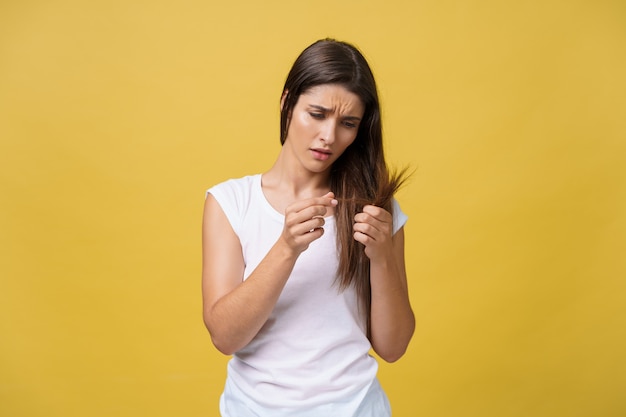
Have you been noticing more hair falling out than usual? Hair loss expert Dr. Omar explains some common causes of hair loss and offers a solution that works.
Our hair is often tied to our sense of confidence and personal style. However, about 8 million women in the UK experience some level of hair thinning or loss. Many women, 46% in fact, suffer in silence because they feel self-conscious or embarrassed about it.
Losing about 100 to 150 strands of hair each day is perfectly normal. Our hair goes through a growth cycle with three stages. First, the Anagen phase is where 85-90% of our hair actively grows, lasting three to five years. Next is the Catagen phase, a brief one to two-week period when hair stops growing and disconnects from the follicle. Finally, the Telogen phase sees 10-15% of our hair resting before shedding, lasting three to four months before starting the cycle again.
However, if you’re shedding more than usual or your hair isn’t growing back, it’s a sign something might be wrong. Various factors can contribute to hair loss, and it can appear suddenly or gradually. Common signs include thinning hair and bald spots, known medically as alopecia.
The most significant factor in hair loss is a disrupted Hair Growth Cycle. When this cycle is off, the growth phase shortens while the resting phase extends, leading to more shedding and weaker hair regrowth.
One major cause of hair loss is hereditary factors, often seen as male-pattern or female-pattern hair loss. Genetics can lead some hair follicles to be more sensitive to hair loss. Dr. Omar suggests counteracting this genetic tendency with hair growth supplements to rebalance the growth cycle.
Rebalancing involves Proteoglycan Replacement Therapy (PRT). Proteoglycans are essential molecules in the hair follicle necessary for healthy hair growth. Supplements like Nourkrin, which contains Marilex (a fish extract rich in proteoglycans), have been shown to help induce hair follicles back into the growth phase and improve overall hair quality.
Hormonal imbalances can also cause hair loss, particularly the hormone dihydrotestosterone (DHT), a by-product of testosterone. High levels of DHT can affect hair follicles, making them produce thinner hair. Women often experience hair thinning during menopause due to declining estrogen levels and increased sensitivity to male hormones.
Stress is another significant contributor to hair loss. High-stress levels can increase cortisol, the body’s stress hormone, which can lead to inflammation and cause more hair to enter the resting phase prematurely. Managing stress through lifestyle changes can sometimes significantly improve hair health.
Certain medications may also lead to temporary hair loss. Treatments for conditions like cancer, high blood pressure, arthritis, depression, and heart problems may disrupt the hair growth cycle. Typically, hair regrows once the medication is stopped or the body adjusts.
Pregnancy impacts hair due to hormonal changes. During pregnancy, higher estrogen levels can thicken hair, but after childbirth, many women experience hair thinning or shedding. This is temporary and usually resolves as hormone levels normalize.
If you’re facing severe hair loss, consider consulting a doctor or exploring treatments like Proteoglycan Replacement Therapy to restore a healthy hair growth cycle.